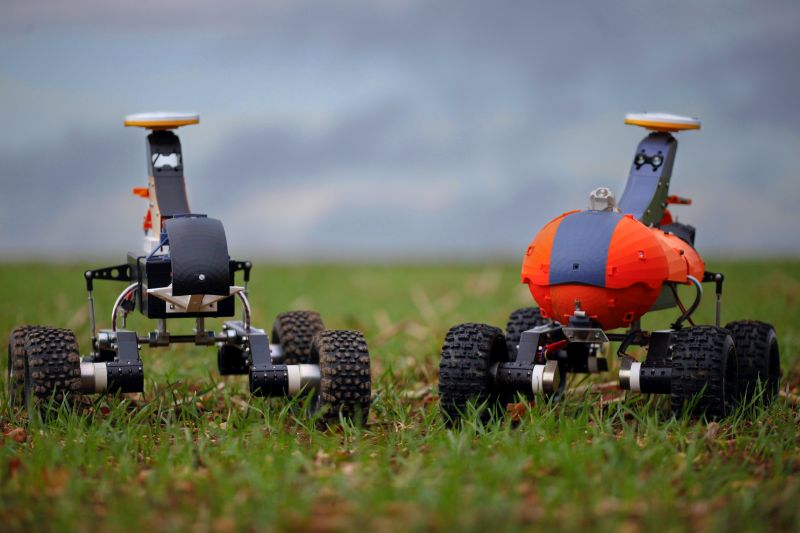
A British agri-tech company which advocates sustainable farming by using robots on-farm has secured more than £1.2m through an online crowdfunding campaign.
The Small Robot Company has raised the hefty sum from more than 1,200 investors after breaking its funding target of £500,000 within minutes of its launch in mid-December.
The company’s successful start to its campaign was overwhelmingly due to backing from the farming community. It is also gathering pace with the technology community, including early investment from Matt Jones, Principle Designer at Google AI.
The agri-tech business harnesses the power and precision of robots and artificial intelligence to improve the way that food is produced and minimise chemical usage.
It sets out to make farms more profitable, and increase yield and efficiency, through using small robots instead of tractors.
Its farm bots Tom, Dick and Harry will plant, feed and weed arable crops autonomously, with minimal waste.
The project has also gathered the backing of retailers, who announced last month that food produced by the project will soon be on shelves.
Sam Watson Jones, a farmer from Shropshire and a co-founder of the Small Robot Company, said the amount raised is 'game-changing'.
“We have already made phenomenal progress. Just one year on from our foundation, we already have three prototype robots and an AI that can tell Wheat from Weed,” he said.
“With this backing through Crowdcube, we are now poised to completely transform food production.”
There is a huge amount of investment going into agritech at the moment, with more than $10bn invested in the sector in 2017, a figure that is projected to rise both this year and next.
Tom, Wilma and Dick
Small Robot Company’s prototype Tom, which is a monitoring robot, is already developed and in field trials on 20 farms across the UK.
This prototype embodies all the core technology needed for Small Robot Company’s farm bot family, which includes autonomy, geolocation, obstacle avoidance, navigation and the ability to accurately position objects on a map within 2 centimetres.
An early version of Wilma, which is the company's AI 'nervous system' and brains of the operation, was also unveiled in November.
Wilma is the core of an intelligent, autonomous crop management system for arable farming. Following extensive field trials, and artificial intelligence training with partner Cosmonio over the last six months, Wilma can already distinguish wheat plants from ‘not-wheat’, meaning any images of items that are not wheat plants.
Dick, a precision spraying and non-chemical weeding robot, will be ready to go in the first half of 2019. Dick will follow later in 2019, with micro-spraying and digital planting being developed for the end of 2019 and early 2020.
Small Robot Company will now work in conjunction with its trial farmers to develop the technology from early proof of concept prototype to a more robust working model, the company said.
It is now be working to establish its ‘Hundred Club’ panel of an additional 100 farmers, both for regular consultation and to come on board to trial its robotics service when it is ready for large scale commercial trials in 2021.
